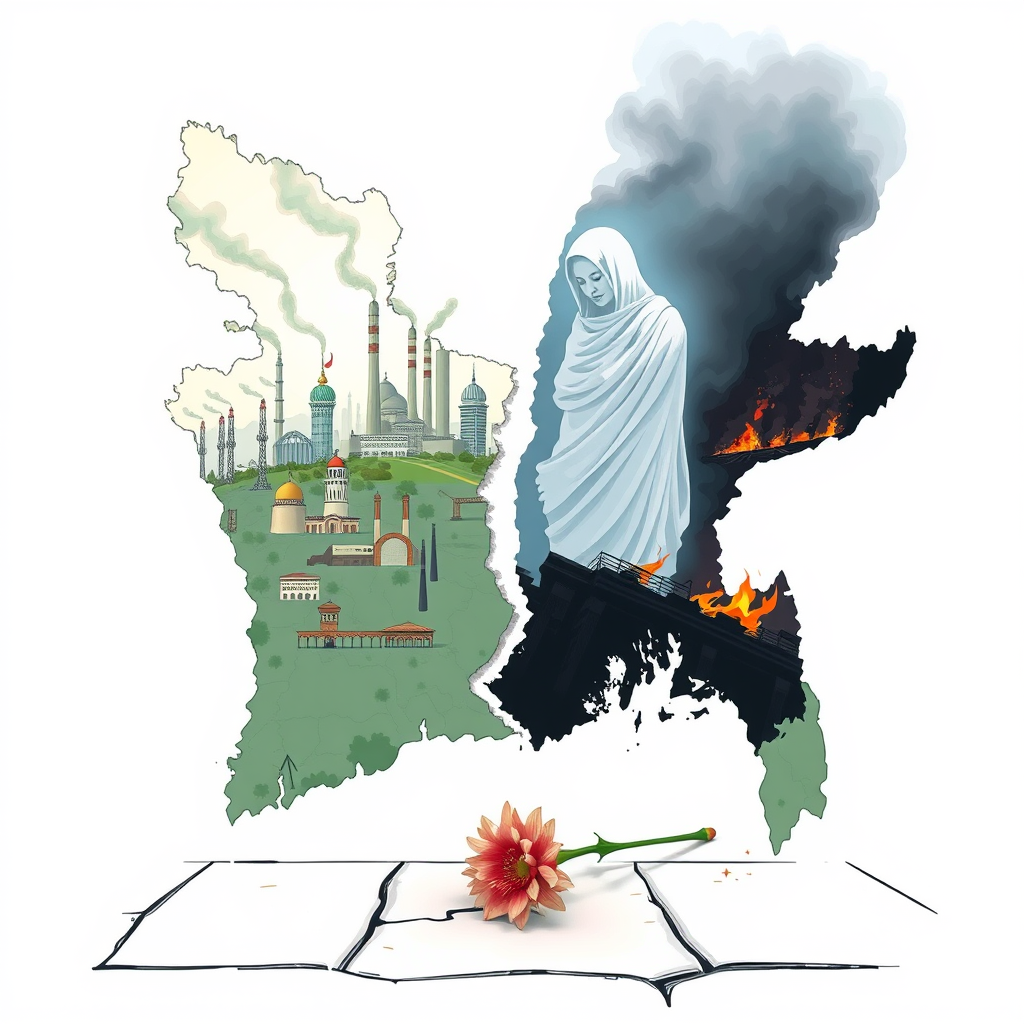Hasina Accuses Yunus of Erasing Bangladesh History

Ousted Bangladeshi Prime Minister Sheikh Hasina has launched a scathing attack on the current interim government led by Muhammad Yunus, accusing him of orchestrating a plot to dismantle her party and destabilize the nation. Speaking virtually from exile in India, Hasina leveled harsh accusations, portraying Yunus as a power-hungry individual erasing the legacy of her Awami League and systematically dismantling Bangladesh’s progress.
Hasina alleges a deliberate campaign to rewrite history, citing the destruction of monuments honoring freedom fighters and the persecution of Awami League supporters. She claims factories linked to her party have been deliberately burned, and thousands have lost their jobs, creating widespread economic hardship. She further accuses the BNP, the main opposition party, of carrying out violence and benefiting from the chaos.
A central point of contention is the death of student activist Abu Sayeed, who became a symbol of protest before Hasina’s removal. A UN report concluded Sayeed was a victim of an extrajudicial killing, a claim Hasina vehemently denies. She insists police used rubber bullets and alleges a conspiracy to frame her government, claiming Yunus obstructed a proper investigation into the incident and removed officials who sought the truth. She proposes exhuming Sayeed’s body for forensic examination to prove her claims.
Hasina also accuses the current regime of undermining institutions, sacking qualified professionals, and filling positions with unqualified political appointees. She alleges widespread looting and corruption by the BNP, exacerbating the economic crisis.
The exiled leader claims Yunus is actively working to “destabilize” Bangladesh and has requested India, through Prime Minister Narendra Modi, to restrain her from making critical remarks. Dhaka, in turn, is seeking Hasina’s extradition.
This escalating rhetoric underscores a deeply fractured political landscape. While Hasina’s accusations are serious and demand scrutiny, they are presented through the lens of a politician fighting for her political survival. The claims of a foreign conspiracy and systematic dismantling of her party are likely intended to rally support and delegitimize the current government.
However, the allegations regarding the death of Abu Sayeed and the potential obstruction of justice are particularly concerning. Independent investigations into these claims are crucial to establish the truth and ensure accountability. The situation highlights the fragility of Bangladesh’s political stability and the urgent need for a peaceful and transparent resolution to the ongoing crisis. The accusations, if proven, could have significant implications for the future of Bangladesh and its relationship with neighboring India.